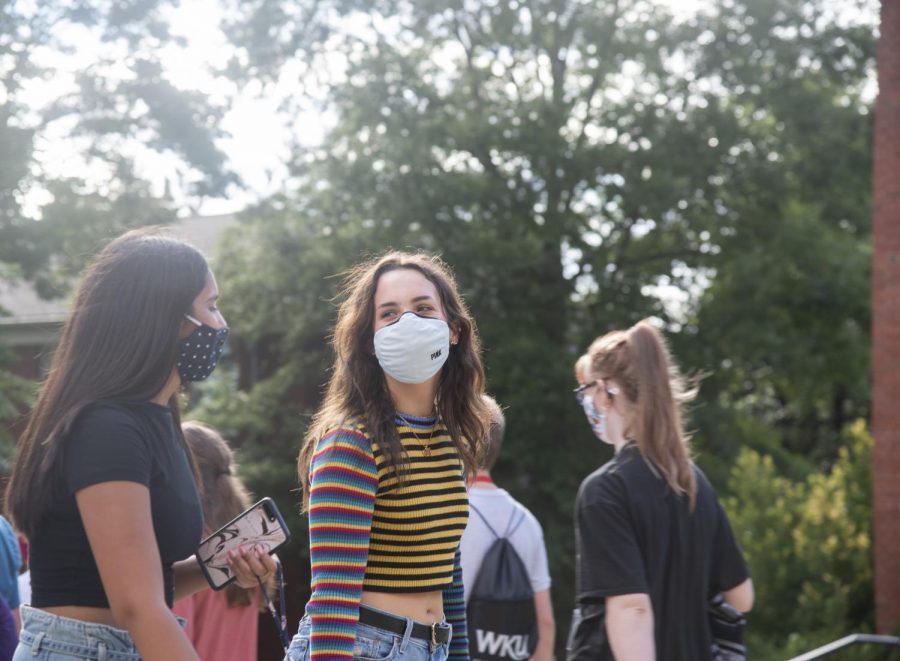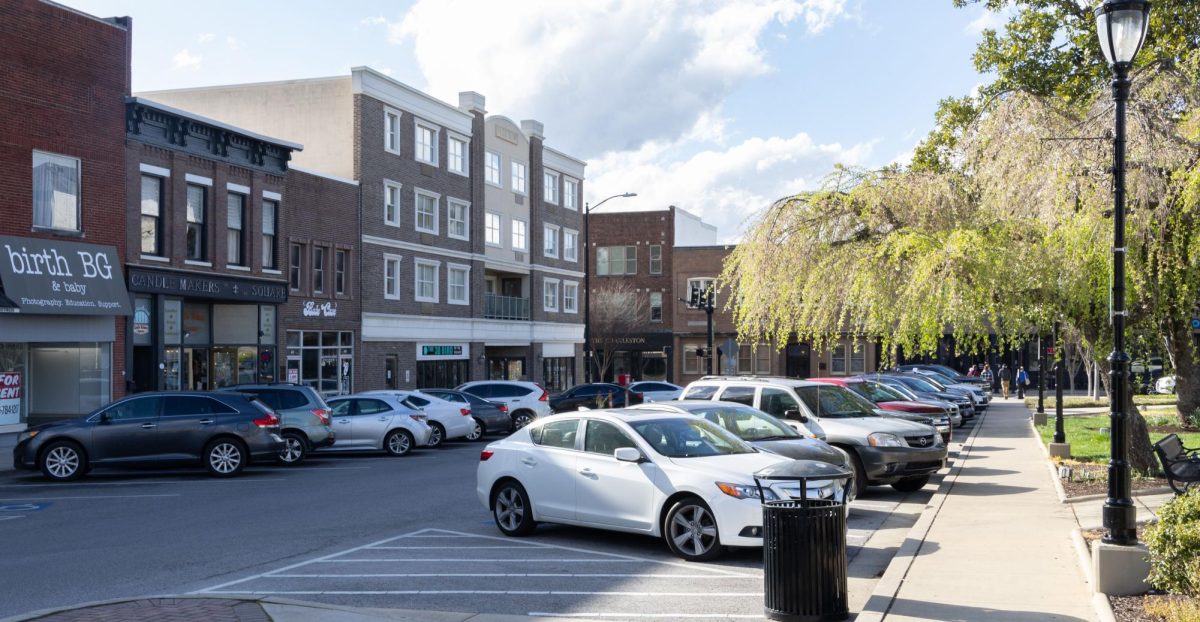Homesickness and COVID-19: Obstacles for freshman increase amid strange semester
February 23, 2021
Walking into DSU during lunch can be an intimidating experience for many students. The small-fish-in-a-big-pond feeling intensifies when students are alone in their venture.
“Day-to-day you go, ‘Who am I going to eat lunch with? I don’t want to eat alone but who is there to eat with?’ and it’s very difficult,” said Trevor Champion, a first-year freshman from Paducah majoring in broadcast journalism. “I think for a lot of us, we’re so alone those first couple of weeks. There’s a lot of isolation and loneliness.”
Freshman students uprooting their lives to move hours outside their comfort zones and away from their parents for the first time causes a majority to struggle with homesickness.
Homesickness is defined as “the distress or impairment caused by
an actual or anticipated separation from home,” according to the Journal of American College Health. This causes a combination of depressive and anxious symptoms, withdrawal and difficulty focusing on anything unrelated to home.
A mild form, according to the same study, allows development of coping skills and healthy attachment behaviors, such as keeping in touch with family. However, the university environment compels students’ need to feel accepted, and when this is not easily or immediately met, intense homesickness can result.
One in three freshman students develop mental health issues such as anxiety or depression from homesickness, according to a study in the Journal of Affective Disorders. WKU hosts more than 3,000 first-year students, according to Ethan Logan, the vice president for Enrollment and Student Experience. Nationwide, there are nearly 20 million first-year freshmen, according to the National Center for Education Statistics.
“At first, homesickness was definitely a thing, and it was a hard issue,” Champion said. “I’ve never had the opportunity to be away from my parents for a long time, so those first couple weeks were rough. I missed my parents, I called them a lot to start off with.”
Little experience away from home is a common risk factor for intense homesickness, according to a study on college freshmen in the Journal of American College Health. Other risk factors include high perceived distance from home, high dependence on family, insecure attachment to parents or unsupportive parenting.
“I think there will always be that burdensome beginning,” Champion said. “It’s going to be tough for everyone coming in because so many people are used to that comfortability.”
Even WKU students from Bowling Green have struggled with homesickness.
“It doesn’t matter where you’re from, homesickness is big in freshmen,” said Peggy Crowe, director of the WKU Counseling Center. “Anything new is an adjustment. We need to teach all humans that we need to feel all our emotions, regardless of age.”
Intense homesickness and mental health issues have been shown to negatively affect students’ grades. A study in the Journal of Affective Disorders found that year-long mental health issues among freshmen were associated with a 0.2-0.3 GPA reduction.
Crowe said the changes from high school to college are drastic and students underestimate the changes in workload. Studies tend to see a correlation between mental health and academic performance, though the relation is not well understood. Intense homesickness can, however, lead to a withdrawal from classes.
Champion said high school was “a breeze” for him, and he didn’t need to study for tests.
“Everything just came to me, and I had good grades,” Champion said. He added teachers expect more from students in college. “The realization that, ‘Shoot, I have to actually work for my grade,’ was a big difference.”
Covid-era freshmen face adjustment challenges unexplored by previous classes. Major changes in campus life and class modalities were made in response to the COVID-19 pandemic. Psychologists fear an increase in loneliness and isolation in college students due to the new challenges, according to the New York Times.
“Many freshmen are frustrated about changes in class modalities; they miss face-to-face interaction,” Crowe said. “Students are already experiencing anxiety or depression typically adjusting to college in addition to COVID-related stress.”
Students are forced to wear masks and remain 6 feet apart, making it harder to find connection. When students lack a sense of belonging, feelings of isolation increase.
Homesick students crave the social connection and belonging from home. Being involved in university life and creating connections aids in the adjustment process, studies show. This is difficult in the COVID- era when most clubs and classes meet over Zoom, and group gatherings are discouraged by university officials.
“I’m a person that values time with others, so I’m not a fan of class- es being online,” Champion said.
He added he’s hopeful the diversity in class modalities will be a valuable tool for schools around the country.
“It’s definitely a challenge, but teachers are trying their best for us,” Champion said.
Positive outlook and adjustments to life away from home promotes resilience, nurtures new friendships and prepares young adults for success in the future, according to the Journal of American College Health.
“We have to approach it with a learning attitude, it will prepare you for the next transition,” Crowe said, encouraging students to be open-minded.
“This is not what we wanted your freshman year to be, but we’re doing the best we can.”
Champion said that though the transition to WKU was hard, it gets better.
“Western doesn’t feel like a second home.” Champion said. “It feels like home, which is something I didn’t expect but it’s happy to think that it’s the truth.”
Copy Desk Chief Hannah Crisp can be reached at hannah.crisp909@ topper.wku.edu. Follow her on Twitter @hnhelizabeth.




















![Students cheer for Senator at Large Jaden Marshall after being announced as the Intercultural Student Engagement Center Senator for the 24th Senate on Wednesday, April 17 in the Senate Chamber in DSU. Ive done everything in my power, Ive said it 100 times, to be for the students, Marshall said. So, not only to win, but to hear that reaction for me by the other students is just something that shows people actually care about me [and] really support me.](https://wkuherald.com/wp-content/uploads/2024/04/jadenmarshall-600x422.jpg)




